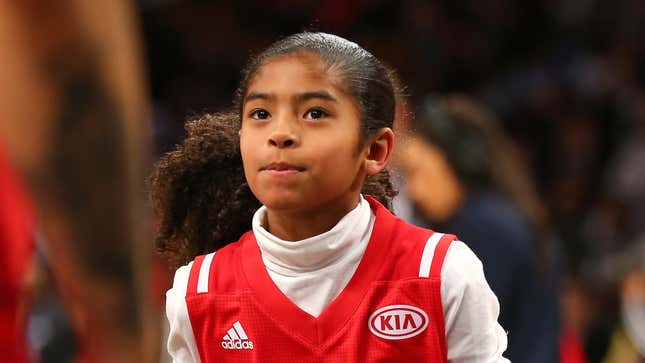Remembering Gianna Bryant and the Collective Grief of Her Tragic, Untimely Death
Latest

Basketball fans and non-fans alike can recall where they were on January 26, 2020, the day that Kobe Bryant was killed in a helicopter crash in California, along with his daughter, Gianna and her peers Payton Chester and Alyssa Altobelli. I was out with my family, celebrating my mother-in-law’s birthday. Right before we made it to the restaurant, the announcement flashed across my phone, and my partner and I spent the next few hours engrossed in our respective news spheres. Dinner was quiet.
Alyssa’s parents died in the crash with her as did Payton’s mom, Sarah, along with the pilot, Ara Zobayan, and a friend of the Bryants, Christina Mauser. Three teenage girls gone in an instant, leaving behind grieving parents and family members, along with the haunting question of what their lives might have been had they made it into adulthood. This imagining frequently focused on Gianna Bryant, referred to by friends and family as Gigi, a budding young basketball star under the tutelage of her superstar father, who dreamed of playing for the UConn Huskies.
-

-

-

-

-

-

-

-

-

-

-

-

-

-

-

-

-

-

-

-

-

-

-

-

-

-

-

-

-

-

-

-

-

-

-

-

-

-

-

-








































